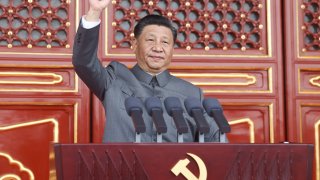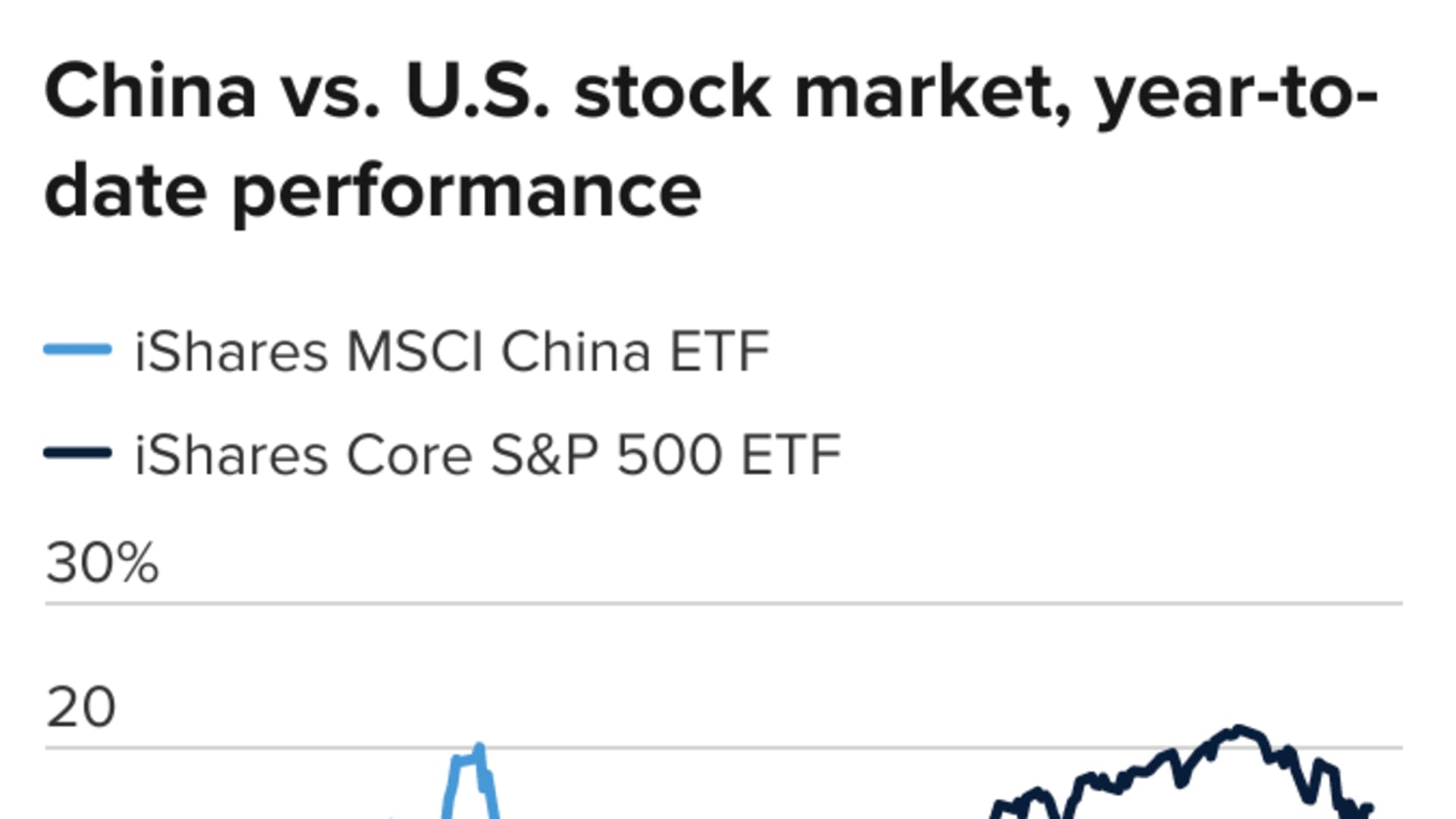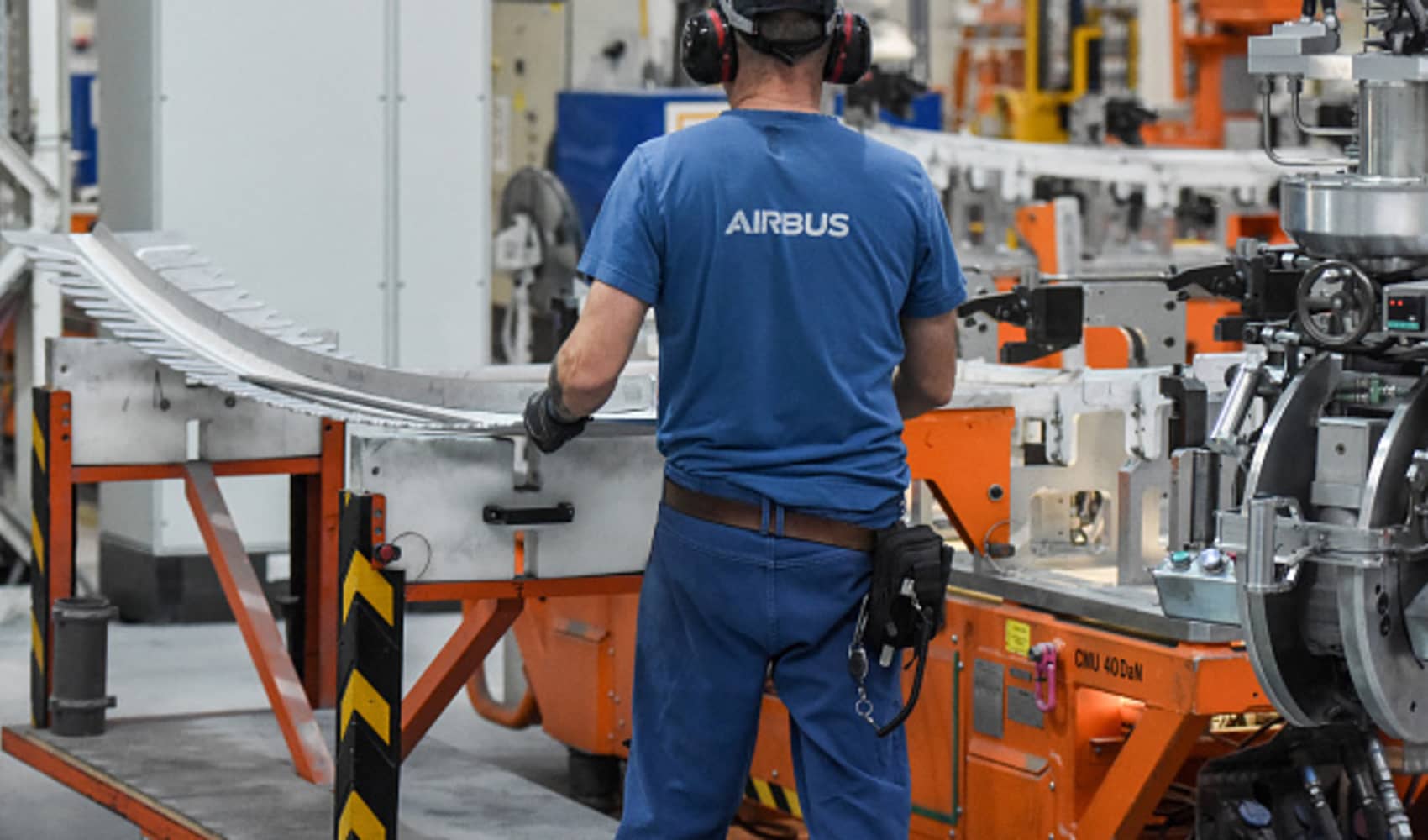
- Institutional investors on Wall Street have deep ties to the Chinese market and continue to believe investing in China is a must for global portfolio diversification and rebalancing.
- J.P. Morgan Asset & Wealth Management CEO Mary Erdoes told CNBC's Delivering Alpha that at a time when U.S. market returns are atypically high, Chinese stocks are "on sale."
- But some top hedge fund and venture capital investors say right now the Chinese market is not worth the risk given recent government intervention and unpredictability, with Chamath Palihapitiya saying bluntly, "that game is over."
Financial advisors have been telling investors for years that if you have a long-term portfolio view of the future, it has to include China. With its stock market down huge this year and its government asserting even more control over its companies, is that still true, or is the time already past to cut and run from stocks in the world's second-biggest economy?
The biggest investing institutions say the benefits of being exposed to China not only remain true, but China's market may be a buy relative to the U.S. stock market given its recent swoon. U.S. equity volatility is up, too, but not enough to put a major dent in valuations after what these investors say has been a period of atypically high returns. The MSCI China Index is down nearly 20% this year, while the S&P 500 Index is up nearly 16%, even after the recent selling and its first 5% decline in over a year.
"China has gone on sale," said J.P. Morgan Asset & Wealth Management CEO Mary Erdoes at the recent CNBC Delivering Alpha conference.
Get Connecticut local news, weather forecasts and entertainment stories to your inbox. Sign up for NBC Connecticut newsletters.
Erdoes, who serves on the U.S.-China Business Council, expressed surprise over the level of reaction to recent moves made by the Chinese government to assert more control over its capital markets and company management.
"All of the hand wringing the world has about words coming out of China is the same thing you hear out of U.S. government so I am not sure why it causes so much consternation," Erdoes said at Delivering Alpha, alluding to, among other things, the Chinese government's "common prosperity" plan to spread wealth among the population. Some of China's largest internet companies, including Alibaba and Tencent, which have been targets of Chinese government monopoly concerns, have said they will invest billions of dollars in this plan.
For some investors, even among the billionaire class, when it comes to generating returns in China it's not only about the money. After BlackRock recently increased its investment focus on China, George Soros took to the pages of the Wall Street Journal to decry "BlackRock's China blunder" and a national security threat to the U.S.
Money Report
BlackRock has urged investors to increase exposure to China by three times, according to a New York Times article on Wednesday looking into the pervasive Chinese market bullishness on Wall Street.
Erdoes reiterated a broad case that has long been made about exposure to China, namely, a middle-class economy that is rising and includes hundreds of millions of people. And she cautioned against reading too much into the recent market headlines. The financial struggles of the Chinese property giant Evergrande are not insignificant, but it is not another Lehman Brothers, Erdoes said, and she added it is "not the largest thing happening in China."
Meanwhile, government scrutiny of figures like Alibaba founder Jack Ma is part of a broader regulatory wave in China that in the end will benefit the investment community, she argued at the CNBC event. To be sure, other top investors with experience in China who spoke at Delivering Alpha said betting on China is not worth the current level of risk.
The Chinese market concerns are occurring amid a wider geopolitical battle between the U.S. and China which has not eased under the Biden administration.
Charlie Munger's call on China
Erdoes looked to a respected source of market wisdom for backing on her China view: Berkshire Hathaway vice chairman Charlie Munger. She cited a CNBC interview from late June, when Munger — who invested early in Chinese company BYD and this week, it was revealed, had increased a stake in Alibaba that is held by the company Daily Journal, where Munger runs the investment portfolio — said he was in favor of the way the communist Chinese were acting against market excess.
"And our own wonderful free enterprise economy is letting all these crazy people go to this gross excess," Munger told CNBC's Becky Quick as part of the Warren Buffett-Charlie Munger documentary "A Wealth of Wisdom."
"People who are avoiding it are the communist Chinese. They step in preemptively to stop speculation. ... Communists did the right thing. ... And I wish we had ... I don't want all of the Chinese system, but I certainly would like to have the financial part of it in my own country."
The case for China ultimately relies on a broader view that most long-term investors accept: proper portfolio construction requires taking advantage of rebalancing opportunities when a market declines.
"It is absolutely time to invest, not just in the Chinese market at large, but the companies which will benefit," Erdoes said. "So many clients are underweight emerging markets in general and very underweight China. I think people should be focused on it. This is the time."

In a piece earlier this week for the Financial Times, Jeffrey Kleintop, chief global investment strategist at Charles Schwab, laid out the big numbers, based on recent market history, that support a bullish stance:
- China's stock market has averaged a 28% drawdown from peak to trough annually over the past 20 years, so this year is nothing new.
- There has been a bear market in Chinese stocks in 17 of the past 20 years.
- Even with that volatility, annualized returns in the MSCI China Index over the past two decades have been above 12%, outperforming the S&P 500.
Ashbel Williams, the executive director and chief investment officer for the Florida State Board of Administration — which oversees roughly $200 billion on behalf of public service employees in the state — said there are reasons to be cautious about China, but speaking on the same Delivering Alpha session with the Erdoes, he agreed with the JP Morgan executive that "the short term bumps and zigs and zags" are signs of opportunity for investors.
Bullish case for emerging markets hasn't changed
Williams' view of the Chinese government's current leadership is that after deepening its power and extending it, investors should expect a more centralized control of the market to result in "leadership urges" which have unintended consequences, "shocks and side effects," he said. But he believes the government will learn over time how to assert its influence without upending the market, and the Chinese market is not atypical in opportunity requiring investors to accept some level of unpredictability.
"At the end of the day if everything is straight and steady and normal and predictable it is not a way one can make money," he said.
China is a huge percentage of emerging markets indices, Williams noted — roughly 37% of the MSCI EM Index and corresponding ETFs like BlackRock's iShares MSCI Emerging Markets ETF — but he added it is not the entire region, and too much focus on China misses the broader investment story. He sees a rising Asian region that is moving beyond being "simply a supplier of cheaper products to the developed world."
"That is important in and of itself, because of the number of people in the Asian region and the expansion of the middle class has tremendously positive commercial ramifications," Williams said. And that's a view that takes on greater importance for him after a period during which U.S. markets returns have been so strong.
Williams and Erdoes both expressed concerns about a run for the U.S. market that can't be sustained and a lower return world in the future. It is not all China — Erdoes pointed to the valuations that European financials are trading at, which would require a 30% gain to get them up to 1x book value. But they cautioned it cannot be all about the domestic bull market either.
"If you've had 30%-50% returns in the U.S. then that's not normal, you need to look elsewhere in the world. It's not just all here in the United States," Williams said.
China is investment in 'radical uncertainty'
There are investors with experience in China who do expect more of the froth to come out of the U.S. market in the near term, but some told CNBC's Delivering Alpha that China is not part of where they are seeking new opportunities.
Brad Gerstner, founder and CEO of Altimeter Capital, thinks the Nasdaq, as an example, still has plenty of room to decline as the U.S. market moves back to a normalized pre-Covid world of interest rates and growth multiples, with rates going higher and, as a result, growth stocks going lower. He sees as much as 10%-15% that the Nasdaq can still "give back" to get back to a more healthy level, and said at Delivering Alpha that he has taken down his firm's net equity exposure to 50% versus 90% at the pandemic low last year.
But his only exposure to China is ByteDance, which his firm invested in five years ago when it was a $10 billion company. Today it is valued at closer to $300 billion, but he said it won't be going public in the U.S. this year, which had been an expectation before the recent moves made by the Chinese government against ridehailing giant DiDi after its U.S. offering. And he sold out of other Chinese stocks, such as Ma's Alibaba and Pinduoduo, last year.
"We've been keen observers," Gerstner said, noting he made his first trip to China in 2003 and invested early in internet pioneers like Trip.com. The issues with Jack Ma were "a signal, but was part of a pattern we were seeing, the reassertion of state power relative to conglomerates," he said. "It's a fundamentally different moment and a historical narrative in China we shouldn't be surprised by," he added. The "toleration of capitalism" as a means to achieve strategic and national goals, he said, is now viewed by Chinese President Xi Jinping as being largely met.
"China is now a national enterprise with one CEO and it is the president of the country," Gerstner said. "You no longer have any of the major founders actively involved in the internet companies and I don't think we will see additional Chinese IPOs in the U.S. All will be directed to Hong Kong."
While Erdoes and Williams said investors need to take risks to generate alpha, Gerstner described the current period in China as one of "radical uncertainty."
"Make no mistake, there will be a lot of economic growth in China," he said, and he added there is reason to believe a period of "relative stability" will occur between now and the Winter Olympics. But he isn't willing to take the investment risk to make the kinds of bets he once did on China.
"I've talked to friends of 20 years who are among the most connected inside of China and the fact of the matter is all of them say with an ample dose of humility they have no idea. ... so as a firm, we are not going to make the call on China."
Investment logic may dictate that when valuations go down because risk has gone up it is time to invest in a depressed opportunity, but that isn't enough to convince Gerstner. "On a risk-adjusted basis, I'm not sure valuations have come down all that much," he said. "This is a fundamental pivot in China and foreign investors are going to look at it very differently."
He said the decisions the Chinese government makes over the next year will have a huge bearing on the relationship with the international financial community. "It is certainly possible it's just another bump in the road and all these stocks rip again, like BABA, but I don't think anyone can say that with a high level of certainty."
'That game is over': Chamath Palihapitiya
The divide between the institutional asset management giants and the more selective hedge funds and VCs — which often get into private tech companies well before IPOs — over whether China is an alpha generator at a time of greater volatility from the U.S. was also reflected in the views of Social Capital founder and CEO Chamath Palihapitiya at Delivering Alpha. He sees inflation as a big risk and more volatility to come, but he believes China will lead volatility rather than be a hedge against it.
"I think there will be lots of volatility," he said. "The question is where will it come from ... You have to look to start in China," Palihapitiya said.
He cautioned investors from accepting the asset management companies China bullishness without skepticism, saying the business model of institutional investors "really needs China to be an investable place."
"There is hundreds of billions in foreign capital and you can charge fees and can generate profits, but I think what you see is that game is over," he said. "China Inc. One country, one company, one CEO."
He said it is still important for investors to keep an eye on what is occurring in China because it will have ramifications for national security, supply chains, and inflation.
"As people come to grips with that, there will be lots of opportunities to make money," he said. But in his view that opportunity is not in the Chinese market today. "I have always said that I can only invest in a place if I really understand how money goes in, and the rule of law, and most importantly, how money can come out, and what we have seen in last six months has really shaken my confidence in the ability to predict what happens next."
For now, Palihapitiya said, China is a place, "I will read about but not invest in."
Missed this year's CNBC's Delivering Alpha investor summit? Access the full sessions on demand for a limited time only. Don't miss the biggest investment ideas in the business. Register for on-demand access at https://bit.ly/390rL5A
This story has been updated to include that news that Charlie Munger increased a stake in Alibaba within the investment portfolio he controls for Daily Journal.






